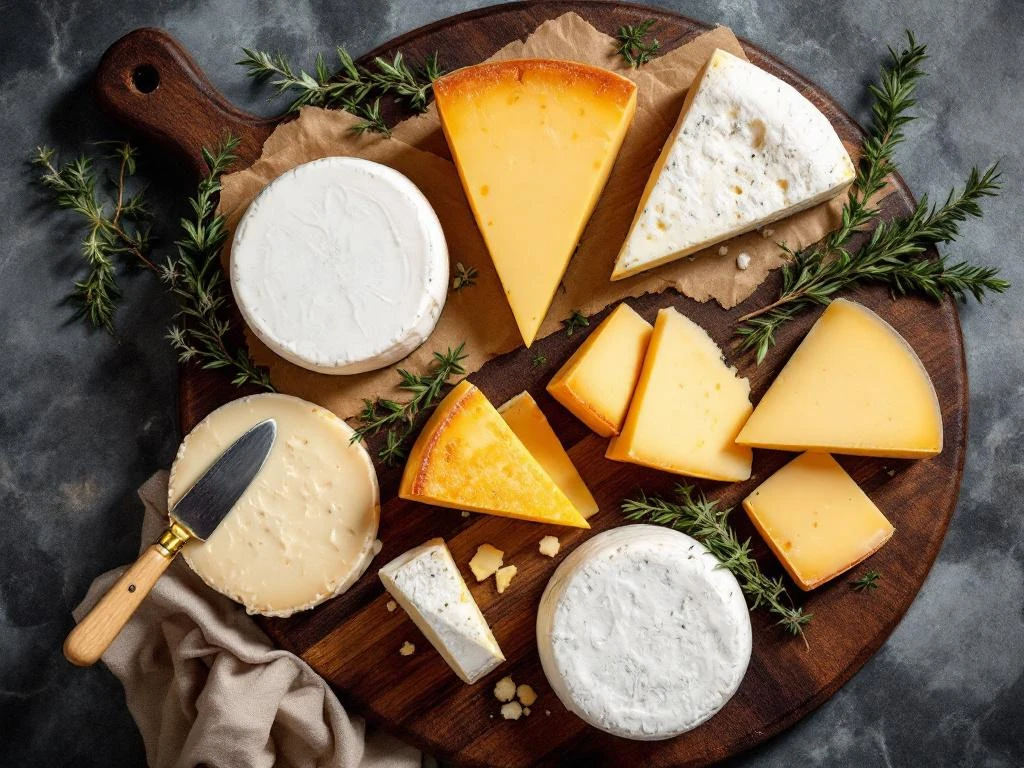The most popular goat cheese brands globally include established names like Président, Montchevre, Laura Chenel, and regional specialists such as Cypress Grove and Vermont Creamery. These manufacturers serve diverse B2B markets through retail channels, foodservice operations, and industrial applications, offering products ranging from fresh cheese logs to aged specialities. Leading brands distinguish themselves through quality certifications, production flexibility, and the ability to meet specific business requirements across different market segments.
Understanding the goat cheese market landscape
The goat cheese market encompasses a diverse range of manufacturers, from large-scale commercial producers to traditional family-owned operations. International brands like Président and Soignon dominate retail shelves with consistent quality and wide distribution networks, whilst regional specialists focus on artisanal production methods and unique flavour profiles. The market serves three primary B2B segments: retail operations including specialty cheese shops and supermarkets, foodservice establishments requiring flexible packaging solutions, and industrial processors seeking bulk ingredients for meal production.
Commercial goat cheese suppliers typically offer extensive product ranges, from fresh cheese logs and crumbles to ripened varieties like goat brie and aged specialities. Private label manufacturing has become increasingly important, with producers offering customised solutions for retailers and foodservice brands. This flexibility allows businesses to differentiate their offerings whilst maintaining consistent quality standards that modern B2B buyers demand.
What makes a goat cheese brand stand out in the B2B market?
Successful goat cheese brands in the B2B market distinguish themselves through several critical factors. Quality certifications such as IFS (International Featured Standards) provide assurance of food safety and production standards, whilst additional certifications like VLOG, GMP, Halal, and Kosher expand market accessibility. Production capacity and flexibility in packaging formats, from small retail portions to bulk industrial quantities, determine a brand’s ability to serve diverse business needs effectively.
Traditional craftsmanship combined with modern production capabilities creates the ideal balance for B2B suppliers. Brands that maintain artisanal cheese-making techniques whilst implementing rigorous quality control systems offer the consistency required for commercial operations. Supply chain reliability proves essential, particularly for businesses requiring regular deliveries and seasonal volume fluctuations. The ability to develop innovative products, such as goat cheese pearls in flavoured oils or convenient pre-portioned formats, helps foodservice operators and retailers meet evolving consumer preferences.
Which goat cheese brands offer the best variety for foodservice?
Foodservice operations require goat cheese suppliers that understand menu development and kitchen efficiency. Leading brands offer comprehensive product ranges designed specifically for professional kitchens, including fresh goat cheese in various formats, ripened varieties with different maturation levels, and innovative presentations like cheese pucks and crumbles. These formats enable chefs to incorporate goat cheese efficiently into salads, pizzas, sandwiches, and hot dishes without compromising on quality or presentation.
Packaging solutions tailored for foodservice include portion-controlled options ranging from individual 7g servings to 1.3kg wheels for high-volume operations. Flavour innovations such as honey-infused varieties, herb-coated options, and truffle-enhanced products allow restaurants to create signature dishes. The best foodservice suppliers also provide technical support, helping chefs understand optimal storage conditions, melting characteristics, and flavour pairings to maximise menu potential.
How do traditional artisanal brands compare to commercial producers?
Traditional family-owned goat cheese producers often emphasise artisanal quality and regional milk sourcing, creating products with distinctive flavour profiles that appeal to specialty retailers and high-end restaurants. These producers typically work with smaller batch sizes, allowing for greater attention to detail and unique product development. However, minimum order quantities may be higher relative to their production capacity, and lead times can be longer due to traditional aging processes.
Large-scale commercial manufacturers excel in consistency, offering standardised products that meet exact specifications across multiple production runs. Their advantages include competitive pricing through economies of scale, extensive distribution networks, and the ability to fulfil large orders promptly. For B2B buyers, the choice often depends on specific business needs: specialty cheese shops may prioritise unique artisanal products, whilst large retailers require the reliability and volume capabilities of commercial producers.
What should B2B buyers consider when selecting goat cheese suppliers?
Evaluating potential goat cheese suppliers requires careful consideration of multiple factors beyond product quality. Production capacity must align with anticipated order volumes, including seasonal fluctuations and growth projections. Certification standards relevant to target markets, such as organic, kosher, or halal certifications, expand sales opportunities. Private label capabilities allow businesses to develop exclusive products, whilst geographic proximity affects delivery times and transportation costs.
Flexibility in product development proves invaluable for businesses seeking to differentiate their offerings. Suppliers who can create custom flavour profiles, adjust fat content, or develop specific packaging formats enable B2B customers to respond quickly to market trends. Technical support, including guidance on storage, handling, and application methods, helps maximise product performance. Additionally, suppliers offering complementary products like goat cheese spreads, pearls, and crumbles provide opportunities for range extension and cross-selling.
Key takeaways for choosing the right goat cheese brand partner
Selecting the ideal goat cheese supplier requires matching supplier capabilities with specific business requirements. Retail operations benefit from partners offering diverse product ranges, attractive packaging, and marketing support. Foodservice businesses need suppliers who understand kitchen operations and can provide consistent quality in practical formats. Industrial processors require reliable bulk suppliers with stringent quality controls and competitive pricing structures.
The most successful B2B partnerships combine traditional cheese-making expertise with modern business practices. Suppliers who maintain artisanal quality whilst offering IFS-certified production, flexible packaging options, and responsive customer service provide the best value. Whether sourcing for specialty cheese shops, restaurant chains, or food manufacturing, the right partner balances product excellence with operational efficiency. We at DeJong Cheese exemplify this approach, combining traditional family recipes with modern production capabilities to serve diverse B2B markets through our Alphenaer brand and extensive private label offerings.
